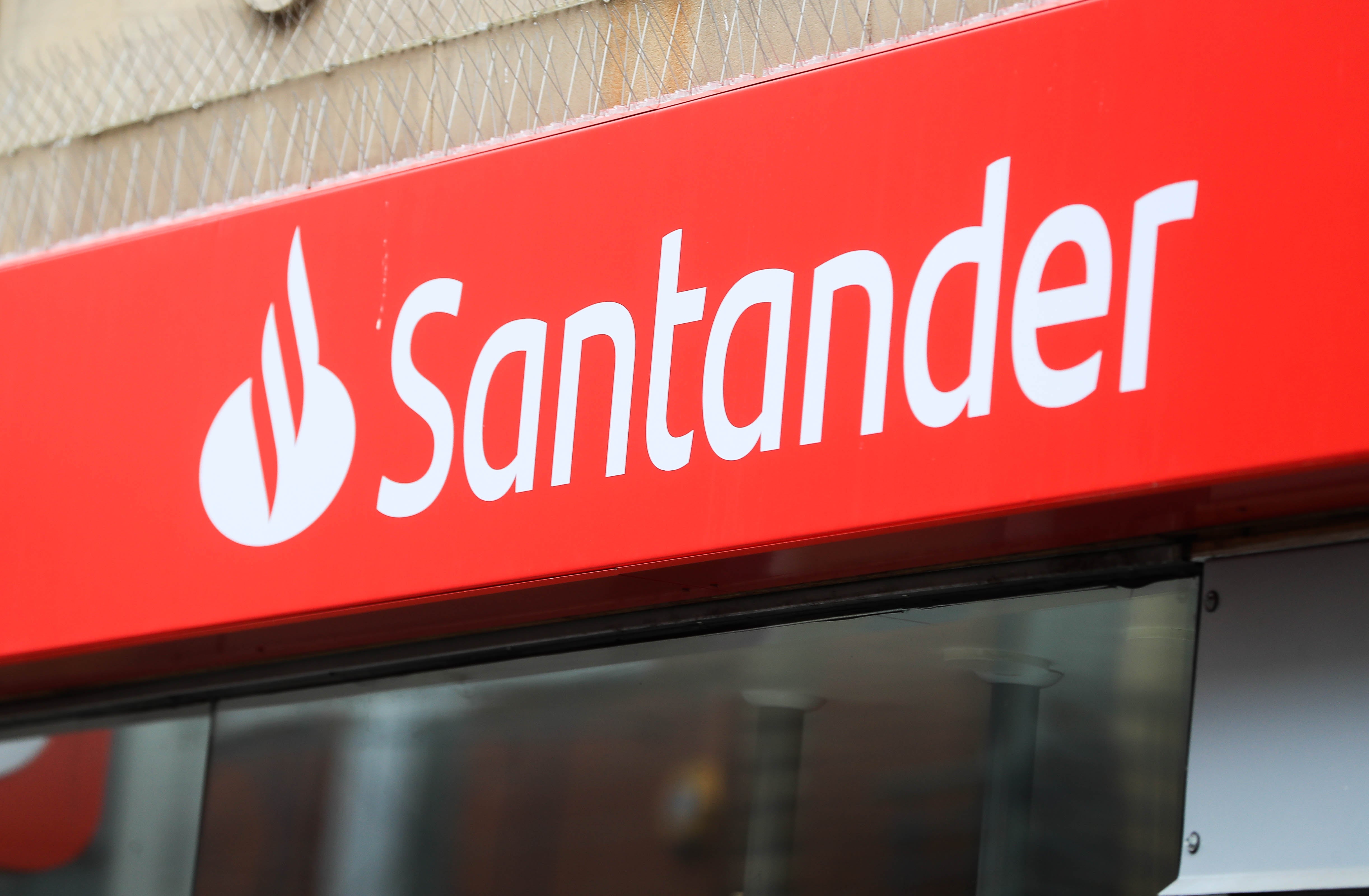Santander reveals branches impacted by ‘pingdemic’ staff shortages
The high street lender is having to temporarily close between 3% and 5% of its UK branches due to staff self-isolating.

Santander has become the latest group to reveal “pingdemic” disruption as the bank said it is having to temporarily close up to around 25 branches in its network due to staff shortages.
Santander UK’s outgoing chief executive Nathan Bostock said between 3% and 5%, or 20 to 25, of its 465-strong network of branches are being impacted by closures as a result of staff having to self-isolate.
Speaking to the PA news agency, he said the bank was managing the disruption by moving staff around where feasible, but that some branches have had to close for a week or so.
Rival lender Metro Bank also said separately on Wednesday that it was suffering operational woes from staff self-isolating, while it was also causing a slowdown in customer activity in July.
However, Santander sought to reassure it was not a big concern for the group’s overall network, with branch closures still lower than they were in the lockdown at the start of the year.
Mr Bostock said: “I’m not going to say it has had no impact, because it clearly does, but it’s not material at the moment.”
The comments came as Santander’s half-year results showed rocketing mortgage lending helped the group notch up a hike in profits as buyers rushed to complete before the tax relief deadline.
The Spanish-owned group said UK pre-tax profits leapt more than five fold to £751 million in the six months to June 30, up from £148 million a year ago.
It was buoyed by £3.6 billion of net mortgage lending growth, with demand spiking ahead of the end of full stamp duty relief on June 30.
The group said £4.6 billion of gross lending was made just in June, with half of what was normally seen in an average month last year being lent in the final five days of June alone.
Figures were also boosted as the group cut its credit provisions for debts expected to turn sour due to the pandemic by £104 million, leading to a £70 million credit write-back, as a result of the improved economic outlook.
It also hailed a £3.3 billion increase in customer deposits, with retail customers having saved more amid the pandemic.
Mr Bostock, who is stepping down later this year to take on a new role overseeing Santander’s investment platforms, said: “We have delivered good growth in net interest income and strong mortgage lending.
“At the same time, we have continued to focus on enhancing our customer experience and improving efficiency.
“Looking ahead, while we are encouraged by the UK’s strong economic recovery, uncertainty remains as we enter a new phase in the pandemic,” he added.
The UK’s strong mortgage lending performance helped the wider Banco Santander group post a net profit of two billion euros (£1.7 billion) for the three months to June, against losses of more than 11 billion euros (£9.4 billion) a year ago when it wrote down the value of a number of businesses.
Bookmark popover
Removed from bookmarks